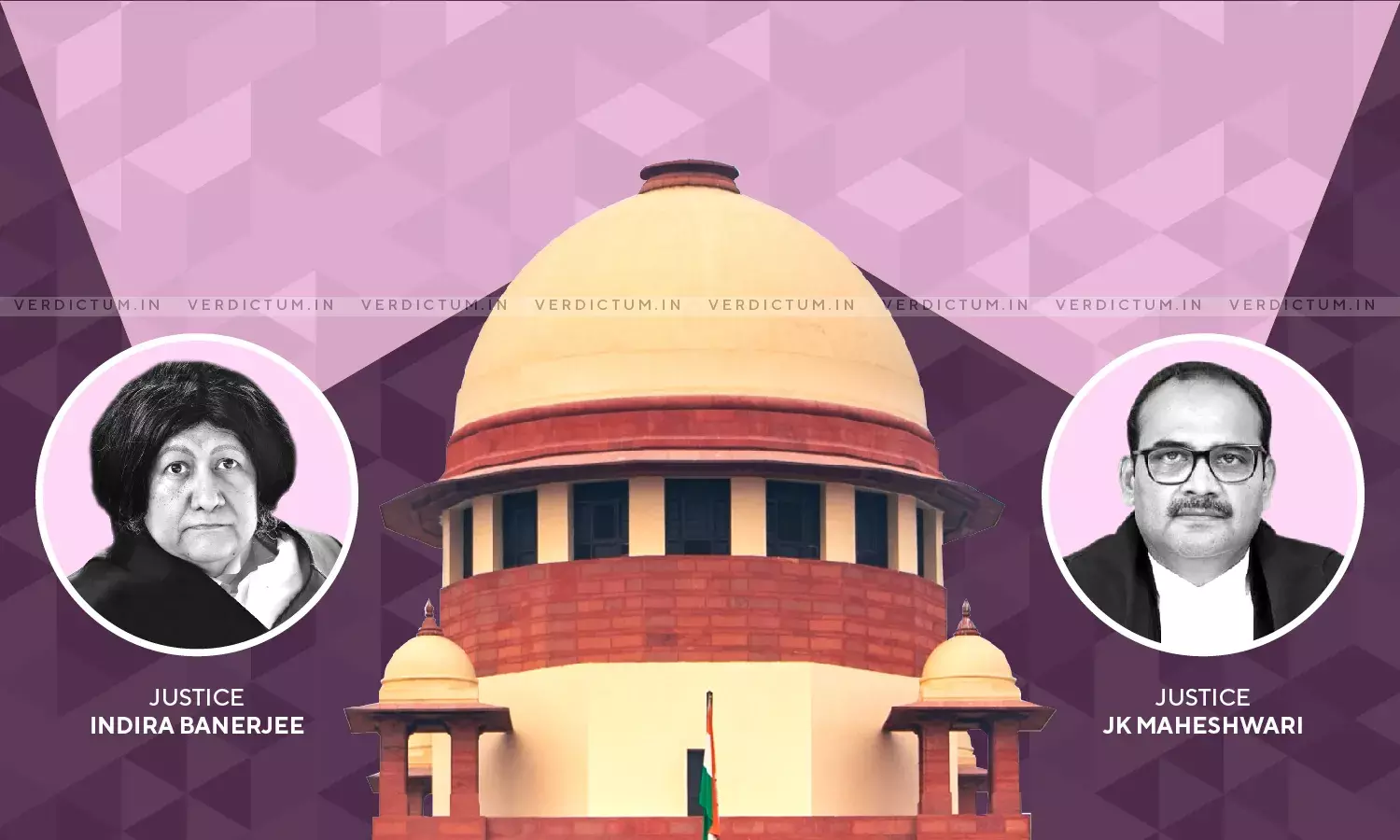Taking Custody Of Jewellery For Safety Does Not Amount to Cruelty U/s. 498A IPC: Supreme Court

A two-judge bench of the Supreme Court comprising Justice Indira Banerjee and Justice J.K. Maheshwari while granting permission to the brother-in-law of the complainant to travel back to the United States of America held that taking custody of jewellery for safety did not constitute cruelty within the meaning of Section 498A of the Indian Penal Code, 1860. The absence of any prima facie allegations against the Appellant i.e. Deepak Sharma in the complaint additionally persuaded the Court to set aside the impugned order of the Punjab & Haryana High Court.
In the present case, the Punjab & Haryana High Court denied the Appellant permission to travel abroad to the United States of America to resume his job considering his involvement in the cruelty meted out to his sister-in-law i.e. the complainant. The Appellant's brother and his parents i.e. the husband and the in-laws of the complainant had been alleged to cause cruelty to the complainant and alleged to have demanded dowry. The Chief Judicial Magistrate at Kurukshetra had directed the Appellant to not leave the country without prior permission of the Court. Subsequently, the Punjab & Haryana High Court rejected the prayer made by the Appellant. The impugned order by the High Court has been subsequently challenged before the Apex Court.
Mr. Manu Mridul appeared for the Appellant i.e. Deepak Sharma while Dr. Monika Gusain appeared for the Respondents before the Apex Court.
The primary question for consideration was as follows –
- (i)Can the fundamental right of personal liberty to travel abroad of the Appellant be denied merely because he has been arrayed as an accused in a complaint which does not disclose any possible criminal offence?
It was contended by the Respondents that since there existed an apprehension that the Appellant's brother i.e. the husband of the complainant might leave the country, it was prudent to deny the prayer of travelling abroad. It was also argued that the charge-sheet against the Appellant was filed and hence, the Appellant must be denied permission to leave the country.
The Supreme Court after perusing the complaint held that the allegations against the Appellant prima facie did not disclose any offence under Section 498A of the IPC. The Appellant had not through his conduct wilfully driven the complainant to commit suicide or to cause grave injury or danger to her life or affect her health (physical and mental). Moreover, the Court noted that the Appellant and his brother neither lived in the same place nor resided in the same premises and hence, the apprehension of the brother leaving the country could not be sustained. Additionally, the Court held that there were no specific allegations which prima facie imposed any liability on the Appellant.
With respect to the contention of the actions of the Appellant constituting a violation under Section 498A, the Court held that – "The complainant has not given any particulars of the jewellery that had allegedly been taken by her mother-in-law and brother-in- law. There is not a whisper of whether any jewellery is lying with the Appellant. It is not even alleged that the Appellant forcibly took away or misappropriated the complainant's jewellery or refused to return the same inspite of request. Taking custody of jewellery for safety cannot constitute cruelty within the meaning of Section 498A of the IPC. There is not even any allegation against the Appellant of any demand or threat or torture for dowry or property. Failure to control an adult brother, living independently, or giving advice to the complainant to adjust to avoid vindictive retaliation from the Accused No. 1 cannot constitute cruelty on the part of the Appellant within the meaning of Section 498A of the IPC.
Thus, the Supreme Court set aside the impugned order of the Punjab & Haryana High Court and modified the order of the Chief Judicial Magistrate at Kurukshetra to delete the condition which mandated the prior permission to be obtained before leaving the country.
Click here to read/download the Order

